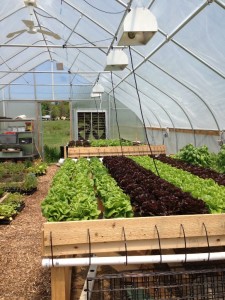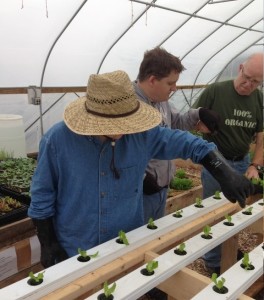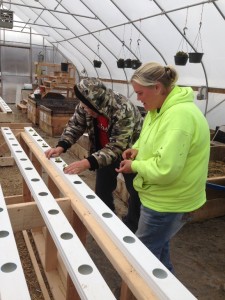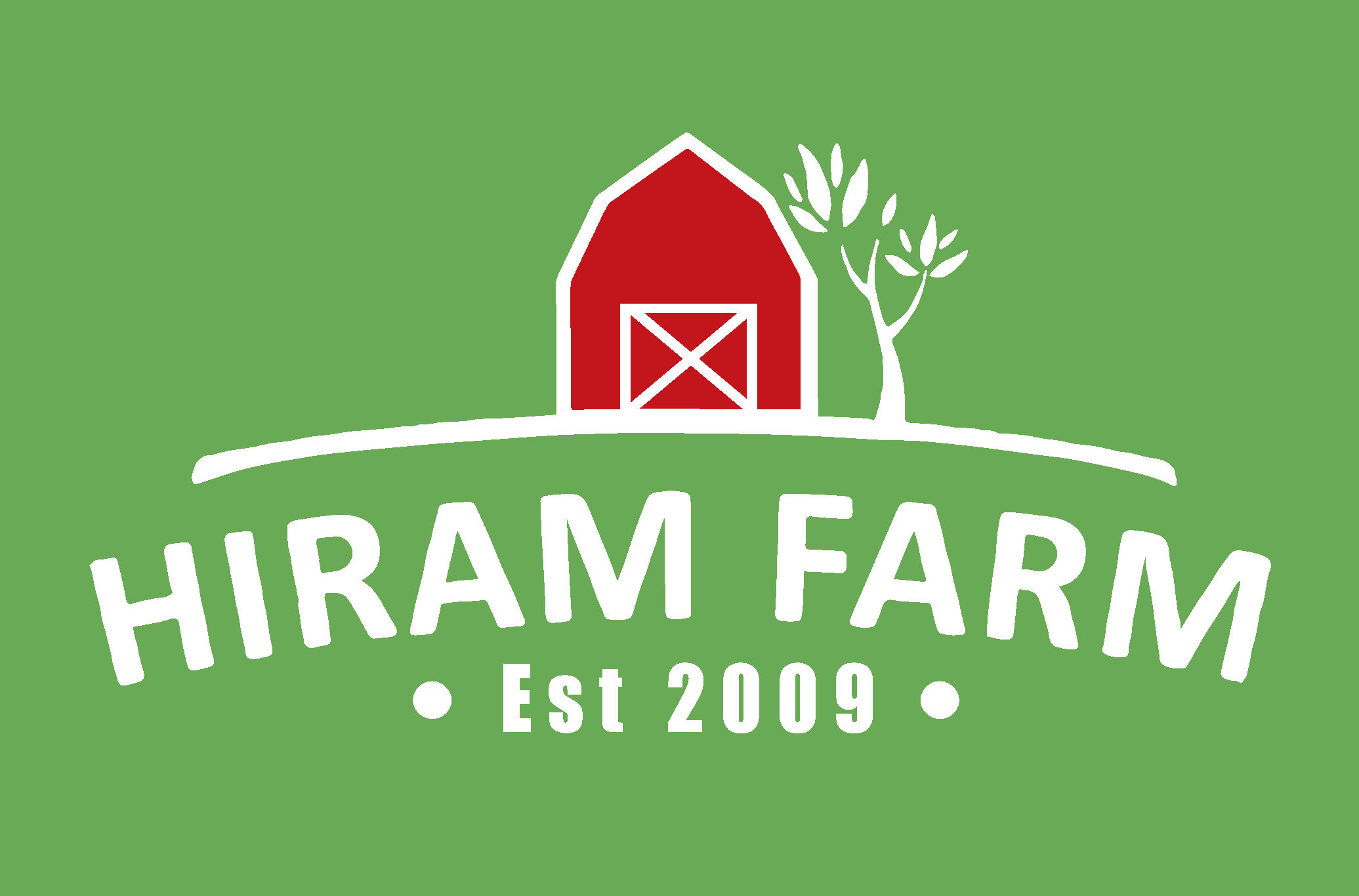
Late June is an exciting time at the Farm, with the first vegetables starting to be ready for harvest. But if you stop at our farm stand, you’ve noticed that we’ve been selling lettuce, basil, and cilantro for a while now. These greens and herbs were available so early because they were grown in the Farm’s exciting new hydro-organic system.
The two sets of hydroponic trays housed in our greenhouse were funded by a grant awarded by the Michael Talty and Helen Talty Charitable Trust in December 2014. The project wouldn’t have been possible without Bob Berg, a Hiram Farm board member and parent of one of our farmers, who wrote the grant and still comes to the farm almost daily to maintain the system. The plastic hydroponic trays were generously donated by Great Lakes Growers, who also provided helpful guidance on the project.
Along with help from the farmers, Hiram Farm family member and volunteer Bob Lambert (“Opa”) worked hard building the wooden supports and setting up the piping that make up the system. The farmers continue to be involved with the hydroponics, planting seedlings, collecting produce for the farm stand, and educating customers about hydro-organics when the Farm sells produce at Hiram College.

What is hydroponics? It’s simply a way of growing plants without soil. As important as soil might seem to farming, giving plant roots direct access to the water, nutrients, and oxygen they need allows plants to grow faster and healthier. The “nutrient film” technique our system uses pumps a thin stream of water and nutrients through the plastic trays the roots of the plants sit in. Like everything we grow on the Farm, no synthetic fertilizers or pesticides are used. The nutrient solution we add to the water is made completely from plant and animal sources.A hydro-organic system like the Farm’s can grow a lot of produce quickly without all the effort of composting, tilling, watering, and weeding that goes into traditional farming. The plants get exactly what they need, so the produce is higher quality than traditionally grown produce. And the plants stay fresh in your kitchen longer because of their attached roots. Hydroponics uses less water than growing in soil, and because rainwater works best with hydroponic systems, we don’t use any tap water, just the rain that usually goes to runoff. One of the most exciting parts of this new addition to Farm infrastructure is that the greenhouse will allow us to grow hydroponic produce year-round, even in the coldest days of winter.

For our farmers, the most valuable benefit of the hydro-organic system is year-round growing season. The hydro-organics will give farmers the opportunity to engage in more work in the typically quiet winters, and the extra revenue will add to their much-deserved paychecks. In addition, the increased amount of produce means the Farm is starting to sell in more places than the farm stand, including Miles Farm Market in Solon and Hiram College on Thursdays from 12 to 1. With every plant we sell, more people are learning about—and getting excited about—the amazing things we do at Hiram Farm.
